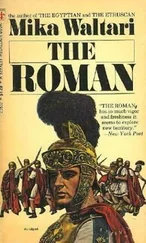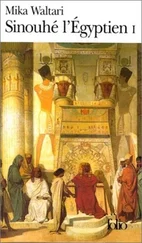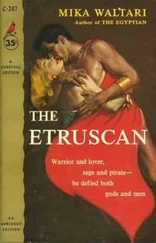Perhaps it was this that caused him suffering and overwhelmed him at times with that restless, gnawing fear. Because of the suspicions of his father he had lived for much of his youth in the shadow of a lurking death, when every night he lay tensely awaiting the coming of the mutes. It seemed to me that this unnaturally passionate friendship for the Grand Vizier had something in it of compulsion, as if by showering favors upon Ibrahim and investing him with limitless power he sought to convince himself that there was at least one man in the world whom he could trust.
The longer I think about Sultan Suleiman the more clearly do I perceive how little I know of his inner nature and thoughts. As lawgiver he made life easier and pleasanter for his subjects than it had formerly been-certainly better than it was in Christendom. His own slaves were the exception, for although they were free to essay the steep ladder to power they never knew whether a horsehair switch or a silken noose awaited them at the top.
My own position as the Grand Vizier’s confidant was singular. As a rule I would visit him after dark, entering the palace by a side door or through the servants’ entrance. Yet it was common knowledge in the Seraglio that petitions and reports could be most rapidly conveyed to the Grand Vizier through me. It was a mystery to everyone therefore how my wife Giulia could come and go in the harem as freely as if she lived there, how she could enjoy the Sultana’s favor, foretell the future for her and her ladies, make purchases for them in the bazaar, and-no doubt for a handsome consideration-obtain audiences with the Sultana for certain wealthy Greek and Jewish women.
Little wonder that the strangest stories about me began circulating in the Seraglio and the foreign quarter. Sometimes my influence was exaggerated, sometimes I was said to be harmless because I frequented poets and learned dervishes. When I began to receive Christian adventurers in my house my fame spread to the West and even as far as the Imperial Court. The Christians who visited me came either on secret missions, or to investigate the chances of entering the Sultan’s service, or again to establish profitable business connections in Istanbul. More than once 1 was able to do these men substantial services, and it was told of me that although I accepted presents the information I gave was strictly accurate.
It was of course natural for me to accept presents from both friends and enemies, as did every influential man in the Seraglio, for without offering them no suppliant could ever dream of gaining an audience. It was by no means an official’s salary that determined his position or the regard in which he was held, and the presents that his appointment brought him constituted by far the greater part of his regular income. The Grand Vizier himself accepted gifts, even from King Ferdinand’s envoys, these presentations being openly made and regarded merely as a courteous acknowledgment of his high station.
Because of my special duties I received many presents in secret, though for my own sake I rendered an accurate account of these to the Grand Vizier. This the givers had no notion of, and because I was apparently so easy to bribe I earned a bad reputation among Christians, who fancied that their gifts were the price of the favors done them. But thanks to Ibrahim’s liberality my conscience remained clear and I never succumbed to the temptation of deceiving him.
I may mention that the Christians threw their money about very foolishly in seeking to steer Ottoman politics in a direction favorable to themselves, and in return were often kept dangling with empty words and fair promises. Not until they were on their way home would it dawn on them to what extent the wool had been pulled over their eyes. Official ambassadors were as a rule royally received. Throughout their stay in Istanbul they were attended by a brilliant suite and a special guard of janissaries; houses and servants were assigned to them and as much as twenty ducats daily allowed them for subsistence, and they were frequently received in audience by the Grand Vizier, who was a master of procrastination.
At long last the envoys would be ushered into the golden-colonnaded chamber of the Divan, though not until they had first been dazzled by a display in the janissaries’ courtyard. Here elephants with gilded tusks were to be seen, and the magnificent procession of the viziers and their retinue. Dazed and bewildered by these splendors they found themselves bowing before the Sultan-a sultan seated upon a pearl- incrusted throne. With every breath the thousand jewels of his golden robe winked and flashed, and the ambassadors soon perceived how highly they were honored in being permitted to kiss that jeweled hand and listen to the meaningless compliments with which Suleiman was pleased to greet them. Throughout their stay in Istanbul they had felt entangled in the meshes of an invisible net; at best all they received was a signed letter from the Sultan to take home with them, and they had soon to confess that the document was worth no more than the embroidered purse in which it lay.
Such was the treatment meted out to official negotiators, and matters were no better when the Grand Vizier consented to come to my house and there, over a cup of wine, interview some Spanish nobleman or Italian adventurer who at the Emperor’s behest sought a private audience. Through such agents Charles V sought to feel the Grand Vizier’s pulse on the question of the partition of the world. By boasting of his influence with the Sultan, Ibrahim would lead his opponent on to reveal his true motives and aims. Yet however warmly he appeared to approve the proposals he was careful never to commit himself. The Sultan himself made no pronouncements, and where this subject was concerned would have nothing whatever to do with foreign spokesmen. Nevertheless he was always intensely interested to discover through the Grand Vizier how far the Emperor was willing to compromise.
I believe that both Sultan and Grand Vizier sincerely wished for peace at this time, yet all the fumbling conferences came to nothing because neither side would trust the other. It was in principle impossible for the Sultan, as Ruler of the Faithful, to consider a lasting peace with unbelievers, since the Koran expressly forbade such a policy. And for his part the Emperor, like the cynical statesman he was, would naturally take the first opportunity of uniting the Christian countries against the Sultan regardless of fair promises and secret treaties, because he rightly saw in the Ottoman Empire a constant menace to imperial power and to Christendom itself.
Sorrowfully I now learned the futility of all politics and saw that however lofty his motives, man cannot control the march of events. The Grand Vizier required my presence at these meetings so that if necessary I could testify that he had ever acted in his lord’s best interests. And as I listened I acquired a widening knowledge of political problems. I learned that one could talk long and eloquently and yet say nothing, and all too plainly I beheld the pettiness, selfishness, vanity, and weakness of mankind. The company of poets and dervishes had trained me in discerning the emptiness of worldly honors. I tried not to set too much store by my position, provided I might keep my fortune, for thanks to this, Giulia could live the life she craved and I was spared her eternal nagging. She measured success in money and valuables, and in her more amiable moments she would even admit that I had not proved so unenterprising as she had feared. She would have liked to see me stand with folded arms and modestly lowered eyes in the colonnaded chamber of the Divan when the kaftans of honor were conferred, but happily she found enough food for her vanity among the ladies of the harem. Even the Sultan’s mother received her in the Old Seraglio, though she suffered a severe heart attack because of Giulia’s prophecies. For I had cautiously guided Giulia’s thoughts in the right direction, and she was so rash as to predict that Sultana Khurrem’s son Selim would succeed to the Ottoman throne. Strangest of all, Giulia herself implicitly believed her own prophecy and began to behave toward Prince Selim with the utmost respect and veneration.
Читать дальше











